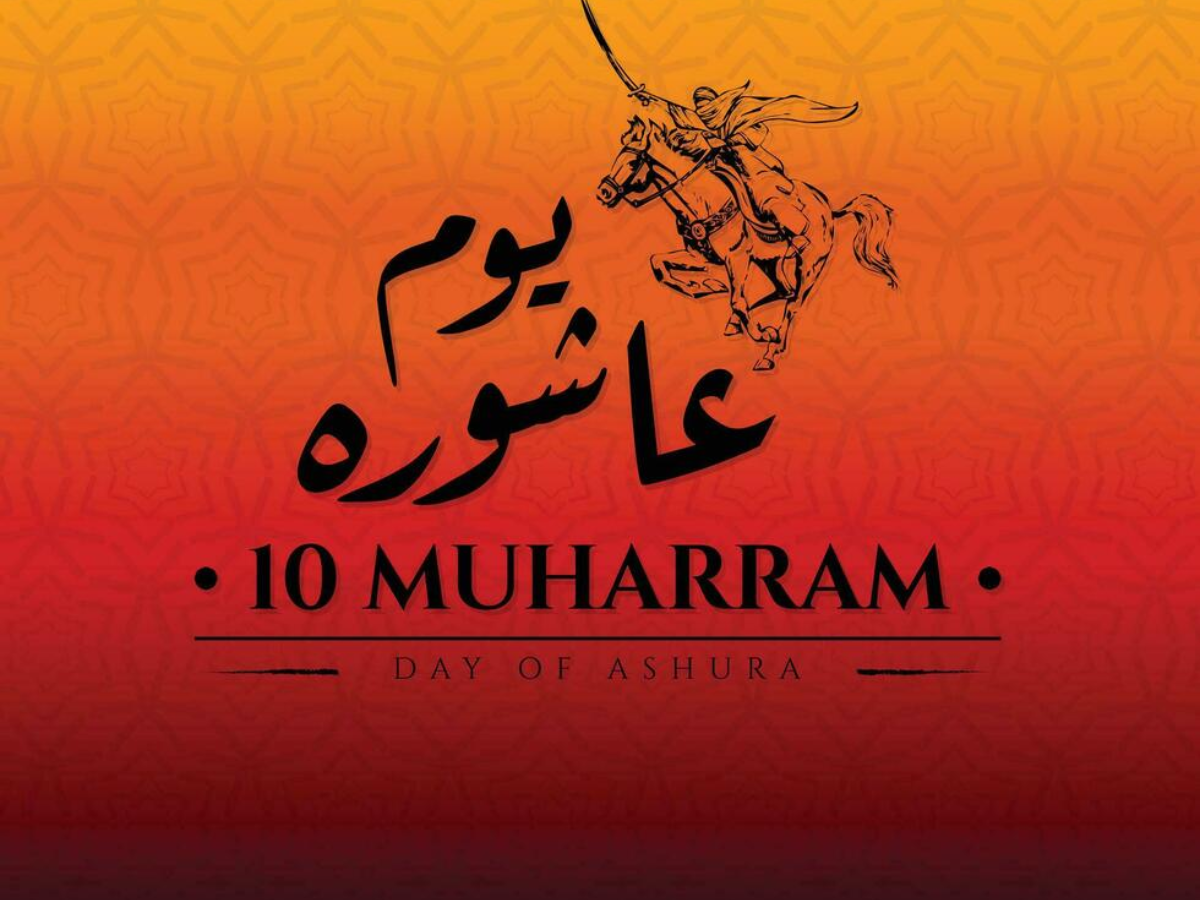The martyrdom of Imam al-Husayn ibn ‘Ali (RA), the beloved grandson of Prophet Muhammad (peace be upon him), at Karbala on the 10th of Muharram in 61 AH, remains one of the most tragic and spiritually significant events in Islamic history. The incident not only marks a historical watershed but also echoes deeply through the hadith literature, particularly in the form of dreams and symbolic gestures from the Prophet (PBUH) himself and his close companions. This article examines several authentic narrations (ahadith) that involve dreams, prophetic foresight, and divine warnings concerning the tragedy of Karbala.
Each narration is presented in its original Arabic form, followed by an English translation, with full references and analysis to understand its context and implications.
1. Hadith of Umm Salama (RA): The Bottle of Karbala Soil
Arabic Text:
عن أم سلمة قالت: كان النبي صلى الله عليه وسلم جالسا في بيتي فقال: «انْ جِبْرِيلَ عَلَيَّ» وكان بينَ يَدَيْهِ قِنٌّةٍ مِنْ رِمْلٍ يَأَخُذُ مِنْهَا فَقَال: «هَذِهِ الطِّيِنَةُ مِنْ أَرْضِ الْكَرْبِ وَالكَرْبِلَاءِ»
Translation:
Umm Salama (RA) said: “The Prophet (PBUH) was lying down in my house when he suddenly woke up in a state of alarm. There was a bottle of soil in his hand. He said, ‘O Umm Salama, do you know what this is?’ I said, ‘No.’ He replied, ‘This is soil from the land where Husayn will be martyred. Jibril (Gabriel) just informed me.'”
Reference: Musnad Ahmad, Hadith 25943; also reported in al-Hakim’s Mustadrak (vol. 4, p. 398) with a Sahih isnad.
Analysis:
This hadith directly establishes the Prophet’s knowledge, through divine revelation, of the future martyrdom of his grandson. The symbolism of soil turning into blood upon the martyrdom day deepens the gravity of the tragedy.
2. Hadith of Sa‘d bin Abi Waqqas (RA): Dream of the Blood-Filled Bottle
Arabic Text:
عن سعد بن أبي وقاص قال: رأيت رسول الله صلى الله عليه وسلم في المنام ومعه قِنٌّةٍ فِيها دَمٌ. فقلت: يا رسول الله! ما هذهِ؟ قال: «هذا دَمُ الْحُسَيْنِ وَأَصْحَابِهِ لَمْ أَزَلْ أَلْتَقِطُهُ مِنْ اليَوْمِ.»
Translation:
Sa’d ibn Abi Waqqas (RA) said: “I saw the Prophet (PBUH) in a dream after his death. In his hand was a bottle filled with blood. I asked him, ‘O Messenger of Allah, what is this?’ He replied, ‘This is the blood of Husayn and his companions. I have been collecting it today.'”
Reference: al-Hakim in Mustadrak, vol. 4, Hadith 4873. Graded Sahih by al-Dhahabi.
Analysis:
This poignant narration shows the Prophet’s continued spiritual presence and concern for his family even after his passing. The blood-filled bottle represents both divine awareness and prophetic sorrow over Karbala.
3. Hadith of Ibn Abbas (RA): The Dream of the Prophet with Dust on His Hair
Arabic Text:
عن ابن عباس قال: رأيت رسول الله صلى الله عليه وسلم في المنام وشعره مغبر فقلت ما لك يا رسول الله فقال قتل الحسين ولم اغسل شعري من الغبار من كربلاء
Translation:
Ibn Abbas (RA) said: “I saw the Prophet (PBUH) in a dream with dust in his hair. I asked, ‘What has happened to you, O Messenger of Allah?’ He replied, ‘Husayn has been martyred, and I have not yet brushed the dust of Karbala from my hair.'”
Reference: Al-Hakim, Mustadrak, vol. 4; also reported by al-Khatib al-Baghdadi.
Analysis:
The imagery in this dream is heart-wrenching. It reflects the Prophet’s emotional and spiritual anguish and testifies to the gravity of Husayn’s martyrdom.
4. Sayyidah Fatimah’s (RA) Dream: Prefiguration of Karbala
While not found in the major six canonical books of hadith, several historical sources report that Sayyidah Fatimah (RA), the beloved daughter of the Prophet (PBUH), also received a dream or vision regarding the fate of her son Husayn (RA). Some scholars, including al-Tabari and Ibn Kathir, narrate that Fatimah was informed through dream or divine inspiration of the coming tragedy.
Arabic (from Maqtal al-Husayn):
عن فاطمة الزهراء رضي الله عنها: رَأَيْتُ أَبِي رَسُولَ اللَّهِ صَلَّى اللَّهُ عَلَيْهِ وَسَلَّمَ فِي الْمَنَامِ، وَقَالَ: “يَا بُنَيَّةَ، إِنَّ حُسَيْنًا يُقْتَلُ بِأَرْضِ كَرْبَلَاءَ، وَيُذْبَحُ كَالشَّاةِ، وَيَذْهَبُ فِي سَبِيلِ اللَّهِ شَهِيدًا.”
Translation:
Fatimah (RA) reported: “I saw my father, the Messenger of Allah (PBUH), in a dream and he said: ‘O my daughter, Husayn will be killed in the land of Karbala, slaughtered like a lamb, and he will go as a martyr in the path of Allah.'”
Reference: Maqtal al-Husayn by Abu Mikhnaf, cited in al-Tabari’s Tarikh al-Rusul wal-Muluk.
Analysis:
Though the chain of narration is debated, the widespread appearance of this tradition in early Islamic literature reflects a persistent historical memory of Karbala that was known even before it occurred.
Reflections from the Ulama on These Hadiths
Many classical scholars, including Imam al-Suyuti, al-Nawawi, and Ibn Hajar, acknowledged the spiritual and prophetic forewarnings of Karbala. Al-Suyuti, in particular, commented that the dreams and soil-related miracles are part of the khasā’is (special traits) of the Prophet’s household.
- Al-Suyuti (Sharh al-Sudur): “These dreams are true visions (ru’yā sādiqa) which affirm the elevated status of the Ahl al-Bayt.”
- Ibn Kathir (al-Bidāya wa al-Nihāya): “The signs that appeared before the martyrdom of Husayn were many, and they served as proofs of divine will and prophetic sadness.”
Conclusion: The Spiritual Legacy of Karbala
The narrations and dreams discussed above are not just historical memories but deeply spiritual events that convey immense theological and emotional significance. They highlight the following:
- The Prophet Muhammad (PBUH) was informed by divine means about the martyrdom of his grandson.
- His emotional connection to Husayn (RA) continued beyond his lifetime.
- The Ahl al-Bayt held a special place in the spiritual history of Islam, and their trials reflect deeper divine wisdom.
These narrations remind the ummah of the eternal value of sacrifice for justice, righteousness, and the preservation of faith. The tragedy of Karbala is not merely a political event—it is a divine lesson in steadfastness, love, and prophetic loyalty.

